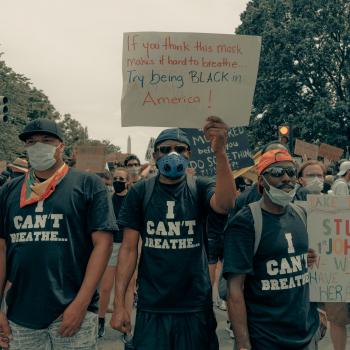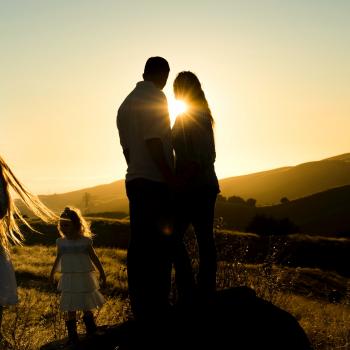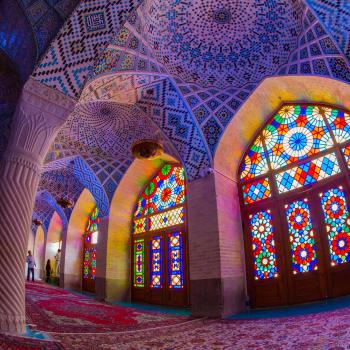Amira Kotb
How long have you been fostering? How many children have you fostered?
We got licensed as a foster family in January 2017. In February, we received our first placement: a set of two siblings (a 3-year-old girl and an 8-month-old boy, Afghan-American Muslims) and they stayed with us for one month before returning to their mom. Two weeks later, we received an 8-year-old boy (Ethiopian-American Muslim) who stayed with us for a little over two months. Then we had to travel for a summer vacation for a month and we just came back expecting to receive more.
What made you want to become a foster parent?
Growing up in Egypt, I have always seen homeless children living on the street without any adult supervision. They were victims of either abuse or neglect, and the streets were their only safe haven. I became interested in learning more about the world of “street children” and made them the focus of my graduate studies, activism, and volunteering time.
When I relocated to the U.S., I wanted to continue doing the same except that there were no children on the street. I wanted to continue serving children who were victims of neglect or abuse and foster kids were the closest group. I first became a CASA volunteer (Court Appointed Special Advocate for abused and neglected children) for almost two years, which meant I was appointed by the court to be the child’s voice in the courtroom. A CASA volunteer is expected to meet the foster child frequently to make sure he/she is being well taken care of in their foster home and to have them feel that there is someone who cares.
Foster children are usually placed with a family that makes a good cultural match for them. After becoming more familiar with the system, I became aware of the huge shortage of Muslim foster homes. Muslims are humans before anything else, and violence, addiction, abuse, and neglect exist everywhere regardless of people’s religion. This meant Muslim children were entering the system but there were no Muslim families to foster them.
So I started raising awareness within the Muslim community about the system’s dire need for Muslim foster families. My “mini campaign” focused on what I thought were the most important reasons why Muslim families are not interested in foster care. I thought it was due to a mix of confusion surrounding the foster/adoption issue and an unexplained tendency within the Muslim community to feel immune to social ailments or to turn a blind eye to them when they occur.
Except that even when I was encouraging Muslim families to foster, the idea of having a “stranger” at home was strange to both me and my husband. Years went by and I started developing other interests away from working with foster children until I received an email from a social worker that I worked with back when I was encouraging Muslim families to foster/adopt. She was from a different county and was asking if I would be interested in fostering a 13-year-old Muslim girl who needed a foster home in a different city than where her family lives. My husband and I were not yet registered as foster parents, but when a real case presented itself before our eyes and we felt we were the only option for this 13-year-old girl, we couldn’t say no. It was then that we started seriously considering the idea of becoming a licensed foster family.
What has your experience been like as a Muslim foster parent?
We are a family of four (including a 6-year-old girl and an 18-month-old boy). In our preferences, we indicated that we were more interested in 0-5 year-old kids regardless of their racial background but that we would be more prepared to foster kids from a Middle Eastern or Muslim background. Our foster family agency guided us through the process and provided lots of support to the new foster parents we were. Introducing new Muslim foster parents to the system was nothing new to our agency as they had already worked with Muslim foster parents in the past and had Muslim foster parents among their staff.
Our first placement (the Afghan-American 8-month-old and 3-year-old brother and sister) was was a really challenging experience because we suddenly shifted from having two little ones to having four demanding kids full of energy. I remember feeling exhausted so many times and reconsidering my decision to foster, but gradually things started to settle down and I started getting used to the new routine. A “love and logic” parenting class that I had just finished before I got licensed helped me handle all the craziness around the house.
The second placement (the 8-year-old boy who I will call “H”) was both easier and harder to handle, and I know this doesn’t make sense so allow me to explain. It was easier because he was much more independent and was getting along easily with everybody in the house. He was very friendly, sociable and smart, and it was impossible not to get attached to this little cutie. However, he had some anger management issues that made it difficult for us to keep him when we had our children around. He needed another home that ideally wouldn’t have other kids, and that was an extremely difficult decision to make.
When it was time to transfer “H” from our home to another (non-Muslim) home, I remember overhearing his social worker apologize to his mom saying, “I am sorry but there is no other Muslim foster family available in the system right now.” Her words struck me hard because it showed me how we as a community are failing our kids by not being there for them when they need us.
The Muslim community is estimated to be over 7,000 in Sacramento and yet the system struggles to find licensed Muslim homes (I personally know of only two other Muslim foster families in Sacramento). “H” would have been a great fit for a Muslim couple with no kids, with a single man, or with an elderly person. And the same goes for the 13-year-old girl I mentioned earlier who would have loved finding a single foster mom with or without kids.
As for the rewards of being a foster mom, they are countless and are something you can neither measure nor describe. Is faith or your love of God something you can describe to someone who hasn’t tasted it? I am not talking about the rewards of getting hasanaat (blessings) and the Mercy of God or His Jannah (Paradise). I am talking about a general blessing that mysteriously enters your house (and before anything, your heart) when one of those little ones enters your house. After all, kids are said to be the “beloved of God,” so I am sure whoever takes care of them, God touches his/her life in some way or another.
What were the reactions you received from the Muslim community when you decided to foster?
I was pleasantly surprised to see so many people curious to learn and hear more about the experience of being a foster mom. Many mothers shared with me that they wanted to do it at some point but were not sure if they or their husband could handle it. It’s something that I totally get because my husband and I were there at one point, too.
What are some misconceptions that you have noticed the Muslim community has about fostering?
The main misconception I have noticed is that fostering equals adopting, and adopting equals changing the child’s genealogy which is not allowed in Islam.
What is your message to the Muslim community regarding this topic?
You are needed. The system really needs you and the kids need your affection. The Qur’an mentions the stories of 5 foster children repeatedly (Mary, Joseph, Moses, Zayd and Muhammad (saws)) and yet sadly, the system struggles to find Muslim families.












